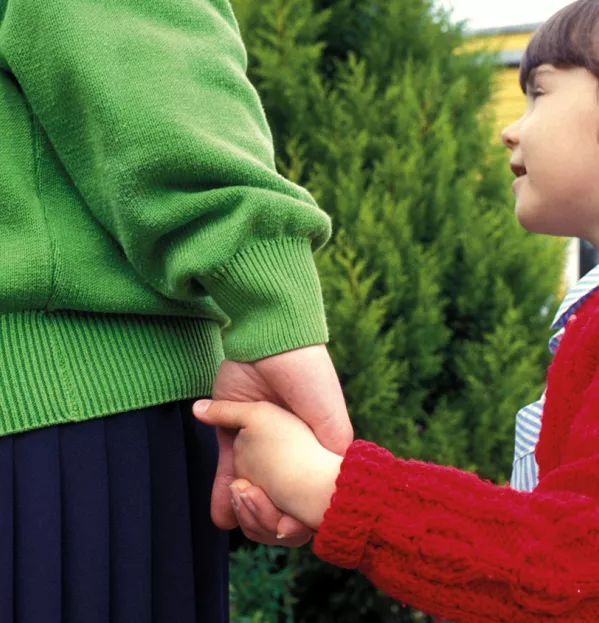Schools can’t fix poverty, but a little empathy goes a long way

It’s recruitment season in Scottish schools. At interview, we are likely to invite candidates to tell us about the skills and qualities that might make them the best person for the job. In among the answers citing great exam results, organisation and ability to meet deadlines, I’m looking for evidence of something else - something more valuable, more human.
More than anything else, adults in schools need to be able to build positive relationships with children and young people. It is a truism that we remember much more about how people made us feel than their words or actions. Those we are most comfortable with often have the ability to see things from our point of view, or the knack of showing us that they really listen when we speak.
Empathy is central to our ability to support children and young people. But as our world changes at an ever-increasing pace, we need to work harder at it - how do you put yourself in the shoes of someone whose experience is starkly removed from your own?
As austerity keeps on biting, rising numbers of families are being affected by the scourge of poverty. In a world where even our elected leaders increasingly reach for invective over inspiration, the way many people speak to each other has changed. The dark side of the digital revolution has multiplied the complexities of adolescence - and, let’s face it, it was a rocky road even before the advent of social media allowed every gaffe, ill-judged comment or unflattering image to be preserved in cyber-aspic. With mental health services buckling under a surge of referrals, it’s more important than ever that those who work with young people are able to identify needs and offer support at an early stage.
Stark reality
The research around the impact of adverse childhood experiences is powerful, and everyone working in education needs to be aware of it. The definition of adverse childhood experiences includes a wide range of stressful events that occur in childhood, for example: domestic violence; physical, sexual or emotional abuse; having a parent with a mental health condition; and growing up in a household where adults have problems with drug or alcohol use.
While the impact can be seen right across society, there is a clear link with poverty - a study in England found that people who had four or more adverse childhood experiences were three times more likely to live in areas with the highest levels of deprivation (see bit.ly/NHS_Scot).
The impact on learning and development is equally stark. Young people who have four or more adverse childhood experiences are 32 times more likely to have problems with learning and behaviour at school.
Many of the adults working in schools will have no direct experience of the challenges faced by significant numbers of pupils. No one is to blame for that, but it does mean that there is the potential for a gulf to develop in our understanding of the circumstances children and young people find themselves in. And this can lead to practices and approaches that, however well-intentioned, only alienate those they are intended to help. If a young person’s experience of Christmas Day involves making sandwiches for younger siblings with stolen fish fingers in an unheated house while the adult is elsewhere, when we have conversations with that young person, we need to hold our assumptions very lightly indeed.
It would be easy to feel overwhelmed. What can we do? We can do what we should be best at: we can learn. Understanding the issues is the first step towards tackling them.
Viewing James Redford’s documentary Resilience: the Biology of Stress and the Science of Hope is a great place to start. If you can get along to one of the screenings involving a discussion with Suzanne Zeedyk, a research scientist based at the University of Dundee’s School of Psychology, and educational consultant David Cameron, all the better - you will leave feeling like part of a growing movement, rather than just one small cog in the machine.
Carol Craig’s recent book Hiding in Plain Sight gives a Scottish perspective, while The Working Class, edited by Ian Gilbert, draws together a rich collection of voices exploring the realities of, and political responses to, poverty and inequality in the UK, and some practical alternatives.
We can reflect on our practice and make small changes. Each one of us can start somewhere and do something. Actions that strengthen positive relationships are the most powerful. Even something as seemingly simple as greeting each learner by name and saying “Hello” can make a real difference.
We can talk about the issue and keep doing so. We need to share what we’re doing, what we’re trying, what’s worked, what hasn’t or what hasn’t yet. And most of all, we can check in with children and young people to see what’s working for them.
Ruth McKay is headteacher at Portobello High School in Edinburgh
You need a Tes subscription to read this article
Subscribe now to read this article and get other subscriber-only content:
- Unlimited access to all Tes magazine content
- Exclusive subscriber-only stories
- Award-winning email newsletters
Already a subscriber? Log in
You need a subscription to read this article
Subscribe now to read this article and get other subscriber-only content, including:
- Unlimited access to all Tes magazine content
- Exclusive subscriber-only stories
- Award-winning email newsletters